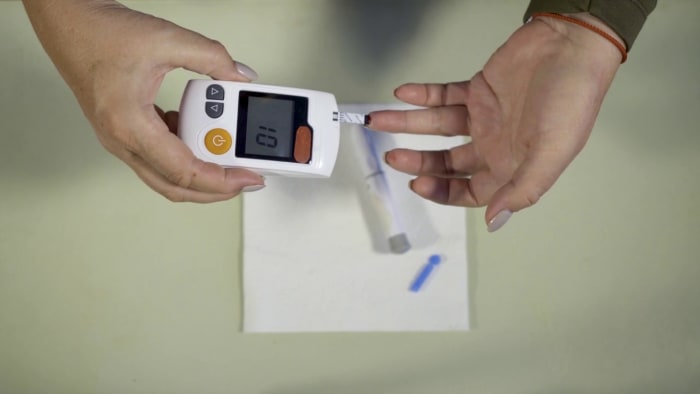san antonio – Bexar County has the highest diabetes death rate in Texas, so it’s important to treat the disease before it becomes full-blown diabetes.
Diabetes and prediabetes are usually determined by A1C, a simple blood test that measures your average blood sugar levels over the past three months.
A reading below 5.7 is considered normal, between 5.7 and 6.4 prediabetes, and above 6.5 diabetes.
Prediabetes is three times more prevalent than diabetes in the United States. More than 100 million people have prediabetes.
“Prediabetes, like diabetes, is a chronic inflammatory disease that requires treatment and must be taken seriously. You are already at risk of heart attack, and you are at risk of stroke, blindness, amputation, and neurological damage. ,” said Dr. Carolina Solis-Herrera, chief of endocrinology at UT Health San Antonio.
Solis-Herrera's team won a $1.2 million award from the Baptist Health Foundation in San Antonio to establish early intervention for prediabetes.
Within a month, a new clinical trial will be launched to test whether four drugs currently used to treat diabetes are effective against prediabetes.
“We need to find strategies that allow us to provide affordable treatments to patients. We need to create awareness among health care professionals so that they can treat patients proactively and dynamically, and patients can be taken seriously.” We need to bring it,” Solis-Herrera said.
9 out of 10 people with prediabetes don't know it, and 50-70% of them will develop diabetes.
“Because they don't go to the doctor,” Solis-Herrera said.
This is even more important for people with risk factors.
“Being part of the Hispanic community and having a family history of diabetes in your parents or siblings. We don't really talk about even having a history of gestational diabetes. If you have a child who weighs more than 9 pounds, , 50% of those women will develop diabetes within five years, so they should get tested,” she said.
Solis-Herrera is urging people in the community to see a doctor, get tested and take action.
“Change your lifestyle. Get 30 minutes of exercise four to five days a week, or eat more vegetables and go for a brisk walk. Maybe even see a nutritionist,” she said.
That extends to children as well.
“As parents, we need to be careful and take our children to the pediatrician for check-ups at least once a year,” she says.
Solis-Herrera also hopes people will invite her to participate in future clinical trials. Anyone over the age of 18 with pre-diabetes can participate.
To find out if you're eligible or to get tested for prediabetes, call 210-450-9059. Participants will be compensated.
Copyright 2024 by KSAT – All rights reserved.


